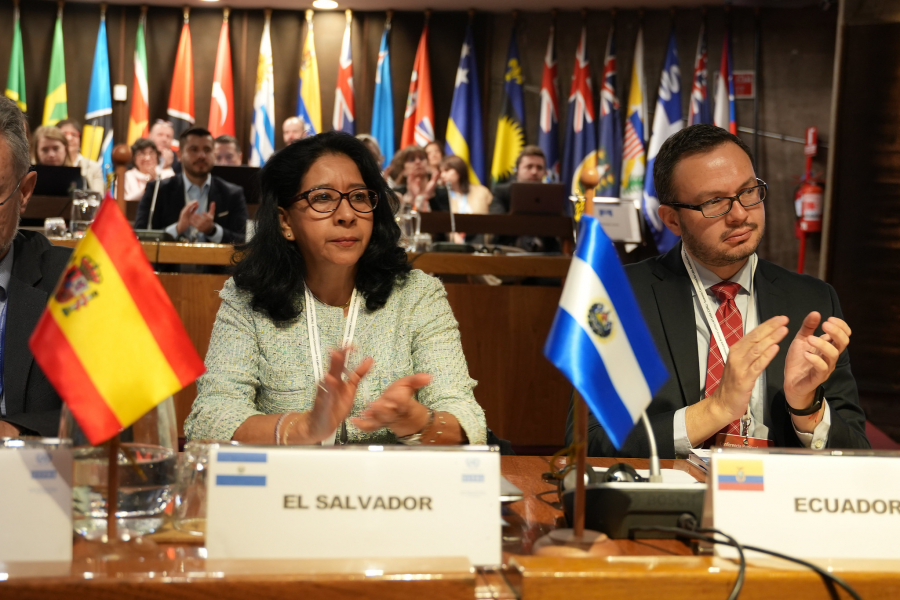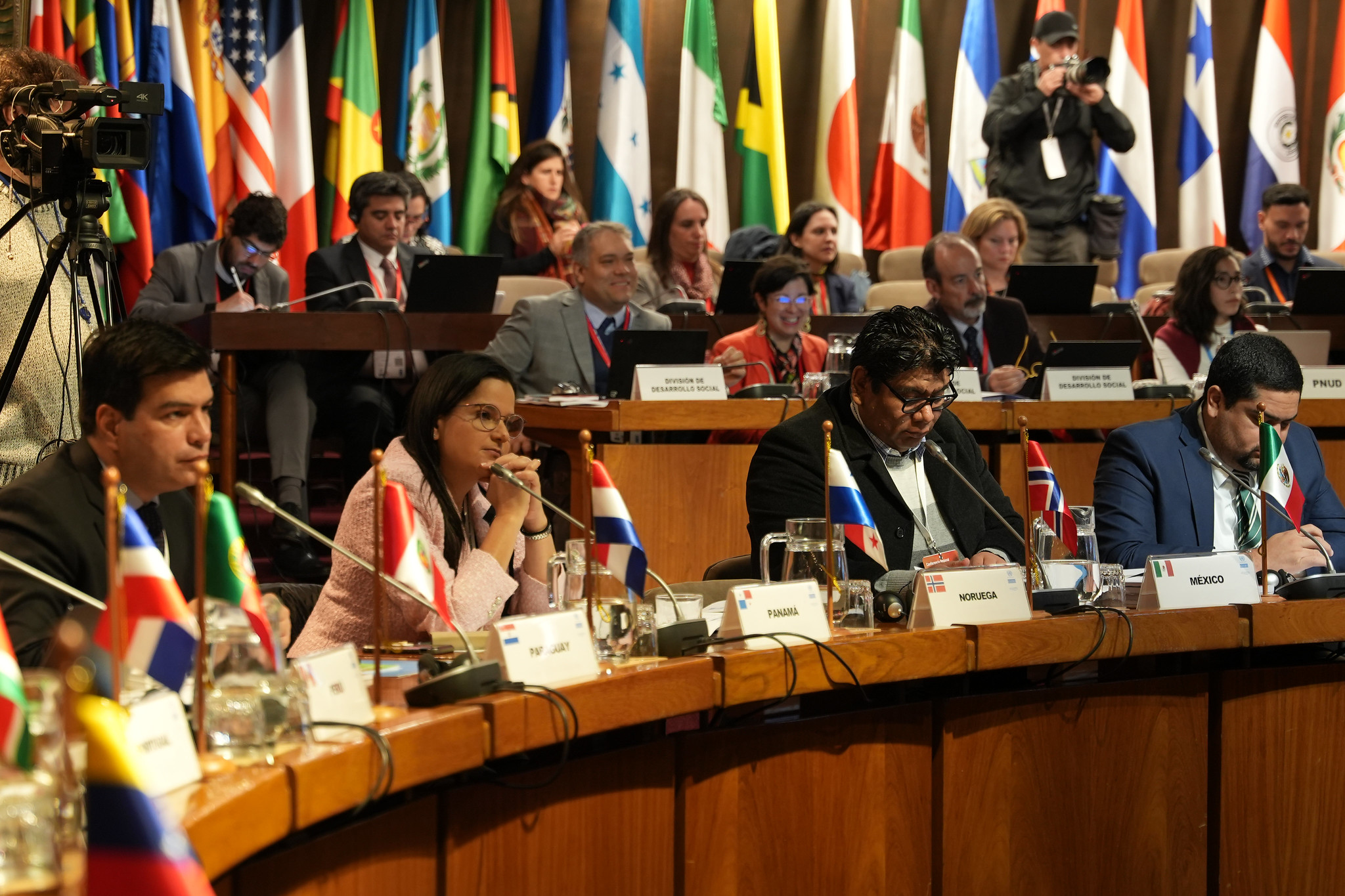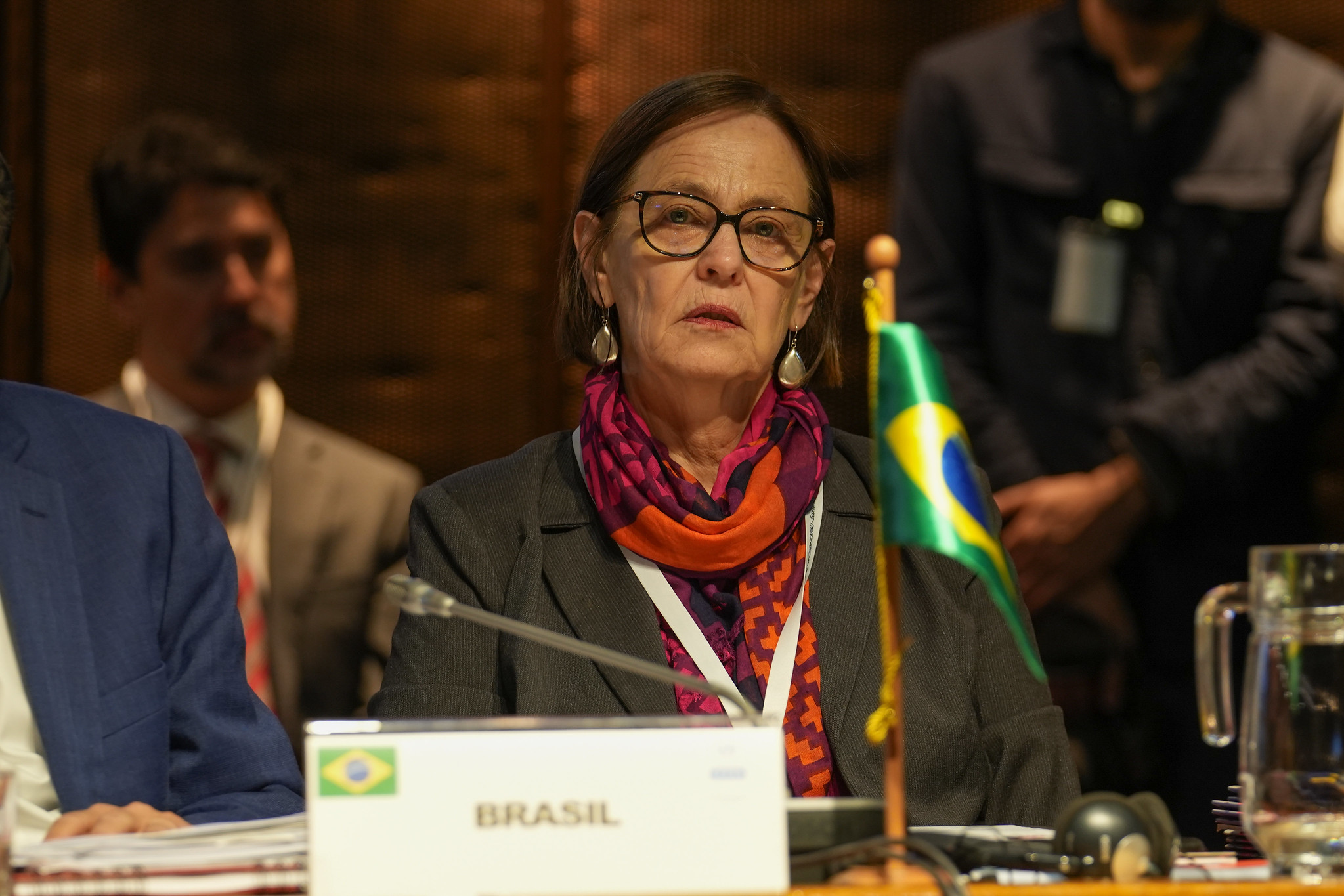During the event, ECLAC presented the position paper "Social institutionality in Latin America and the Caribbean: central axis for progress towards inclusive social development", which analyzes the situation of social institutionality in the countries of the region, examines comparative experiences and attempts to define some paths to follow in order to strengthen capacities and, thus, improve the quality of social development policies.
The document states that in the 2014-2023 decade, when average economic growth was only 0.8%, the average employment growth rate was only 1.3%, the lowest in 70 years.
In addition, 47.9% of workers in the region are informal and women accounted for 69.8% of the total number of inactive people in 2022.
According to ECLAC data, a high proportion of households live in vulnerable conditions: in 2021, almost 60% of the Latin American population belonged to the low stratum, that is to say lived with incomes equivalent to less than 1.8 poverty lines, and almost 80% lived with incomes below three poverty lines.
Some of the topics to be addressed during the three days of the Conference (created in 2014) are the financing of universal social protection systems in Latin America and the Caribbean; capacity building in the Ministries of Social Development; the possibilities and challenges of the so-called one-stop shop; comprehensive information systems for decision-making; and the challenges of governance and cooperation in times of cascading crises.
ECLAC calls for the articulation of growth, productive development and labor market policies with social policies, and the strengthening of social institutions and the governance of decision-making within a framework of regional cooperation with a view to achieving the Sustainable Development Goals (SDGs).
Translated by: A.M
 English
English  Español
Español 



